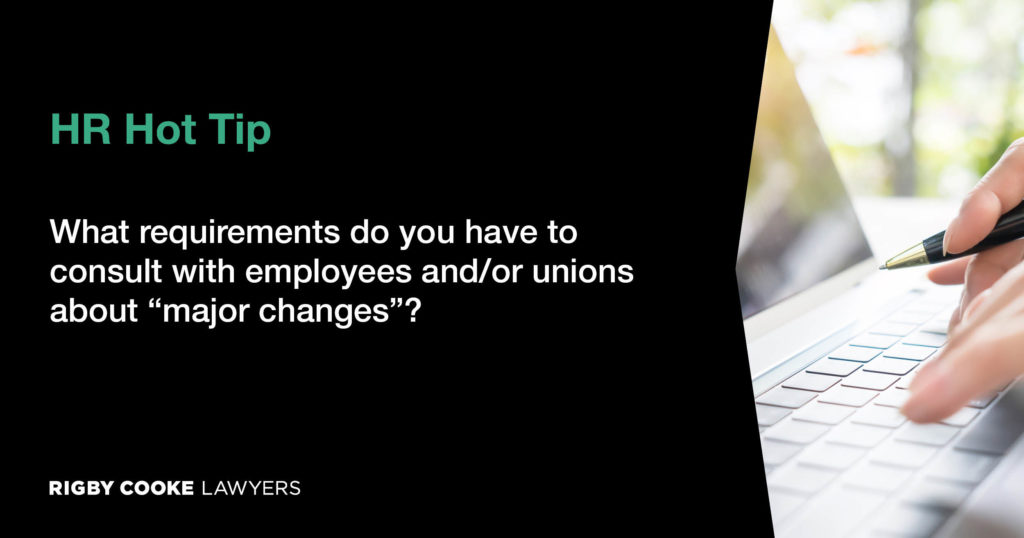Welcome to our series of HR interviews with Lawyer Monika Nosal who answers some of the most common questions asked by HR managers regarding employees’ legal entitlements.
When major changes at the workplace are proposed (for example, redundancies), employers must ensure that they meet any consultation obligations which might apply under various laws and industrial instruments prior to implementing any such changes.
The obligation to consult under modern awards arises when an employer makes a definite decision to introduce a major change to the workplace that is likely to have a significant effect on employees.
Similarly, enterprise agreements must include a consultation clause that requires the employer to consult with employees about a major workplace change that is likely to have a significant effect on the employees. If an agreement does not contain a consultation clause which meets the requirements of the Fair Work Act 2009 (Cth) (FWA), the “model consultation term” is taken to be a term of the agreement.
Employees covered by a modern award or enterprise agreement must also be allowed to be represented (for example, by a union) for the purposes of that consultation.
Failure to consult with employees as required means that an employer may be required to participate in a dispute settlement procedure under the enterprise agreement if this is activated by a union/employees and/or may be ordered by a Court to pay penalties and/or compensation for breach of a modern award/enterprise agreement.
Further, failure to consult with an employee prior to making him or her redundant would provide that employee with access to the unfair dismissal jurisdiction.
If no modern award or enterprise agreement applies to an employee there is no legislative requirement to consult about redundancy before a decision is made to make an employee redundant (although a prudent employer will do so in order to avoid an argument about whether or not the obligation was triggered).
Employers obligations under the National Employment Standards, modern awards, enterprise agreements and contracts can be complex, overlapping, and at times confusing.
Employers need to familiarise themselves with and understand their legal obligations in order to avoid any possible claims by employees (both existing and former) and unsuccessful job applicants, as well as prosecution by the Fair Work Ombudsman. Under the accessorial liability provisions of the FWA, employers and individuals such as directors and HR managers can be personally held accountable for breaching workplace laws in certain circumstances.
A HR Legal Audit conducted by Rigby Cooke can provide the HR function and, in turn, provide employers with comfort in knowing that they are legally compliant, or at least provide advance warning of any potential compliancy issues before they become problematic.
| Disclaimer: This publication contains comments of a general nature only and is provided as an information service. It is not intended to be relied upon as, nor is it a substitute for specific professional advice. No responsibility can be accepted by Rigby Cooke Lawyers or the authors for loss occasioned to any person doing anything as a result of any material in this publication.
Liability limited by a scheme approved under Professional Standards Legislation. ©2020 Rigby Cooke Lawyers |

